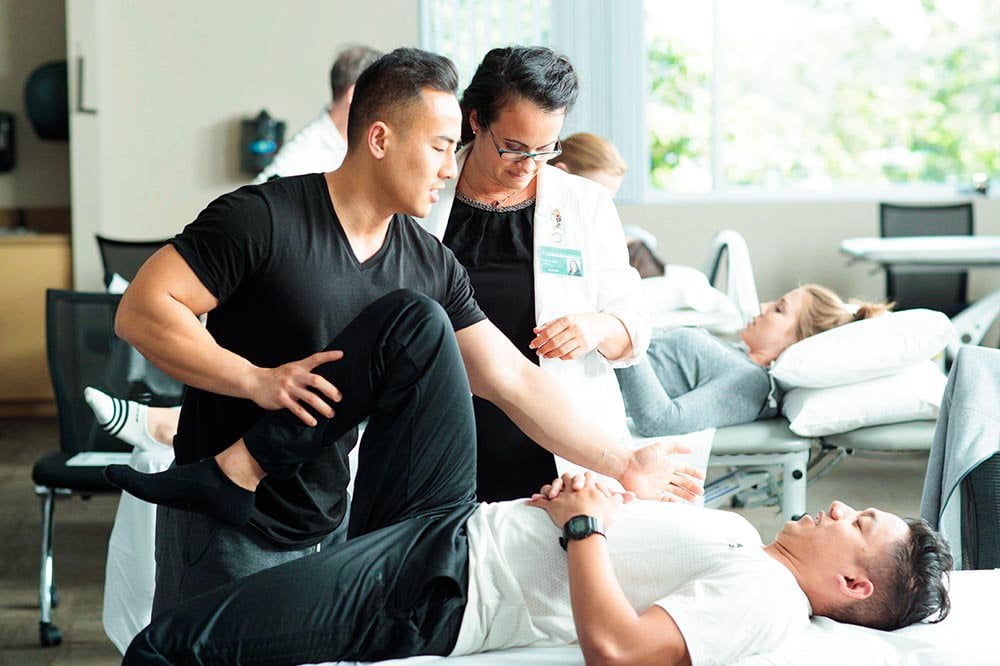Recognizing the Duty of Physiotherapists in Sports Medication
Comprehending the duty of physical specialists in sports medication is vital for athletes and medical care experts alike. Physical therapists play a crucial role in examining professional athletes' problems and injuries, establishing personalized treatment strategies, and applying rehab methods. Working together with health care specialists and trains, physical specialists provide thorough treatment to professional athletes, ensuring their general wellness and optimum performance.

Assessing Professional athlete's Injuries and Issues
Physical therapists in sports medication play an essential role in evaluating athletes' injuries and conditions. The capability to accurately analyze a professional athlete's injury is crucial in determining the appropriate program of treatment and recovery.
Throughout the analysis, physiotherapists gather vital info such as the athlete's medical background, previous injuries, and existing signs. They also perform a comprehensive health examination, evaluating factors such as variety of motion, security, stamina, and flexibility (physical therapists Roanoke). Special analysis tests and imaging may also be utilized to additional review the injury or condition
By performing this detailed evaluation, physiotherapists have the ability to accurately detect the injury and develop a customized therapy plan. This might consist of therapeutic exercises, manual therapy techniques, and methods such as warmth or cold therapy. In addition, physical specialists give education and assistance on correct methods for stopping future injuries, as well as methods for optimizing efficiency and lessening the risk of re-injury.
Developing Tailored Therapy Strategies
Physical specialists in sporting activities medication develop individualized treatment plans based upon their extensive evaluation of an athlete's injuries and conditions. This procedure involves a thorough understanding of the athlete's medical history, health examination, and diagnostic tests. By collecting this info, the physiotherapist can determine the underlying reasons for the injury or condition and determine one of the most suitable training course of therapy.
The customized treatment strategy intends to attend to the certain demands of the professional athlete and promote optimal healing. It might include a combination of healing workouts, hand-operated treatment techniques, methods such as heat or cool treatment, and education and learning on injury prevention. The physiotherapist will likewise think about the professional athlete's objectives, sport-specific demands, and timeline for return to play when developing the treatment strategy.
In addition, the treatment strategy might advance gradually as the athlete advances in their recovery. Normal re-evaluations permit the physical specialist to assess the efficiency of the interventions and make any kind of required alterations. The best goal is to help with the professional athlete's risk-free return to their sport while decreasing the danger of re-injury.
Implementing Recovery Methods
The application of rehabilitation strategies plays a critical duty in the therapy process for professional athletes in sports medication. These techniques are made to assist professional athletes recuperate from injuries, boost their performance, and prevent additional injury. Physical therapists, as professionals in movement and feature, are accountable for carrying out these techniques and assisting athletes with their recovery journey.
Among the key elements of implementing rehab strategies is the assessment of the professional athlete's problem. Physiotherapists examine the athlete's injury or condition, taking right into account factors such as the intensity of the injury, the professional athlete's goals, and their present degree of fitness. Based on this evaluation, the therapist creates an individualized therapy strategy that consists of particular rehab strategies.
Rehabilitation techniques can include a range of treatments such as healing exercises, manual therapy, techniques (e.g., warmth, cool, electrical stimulation), and functional training. These methods are customized to resolve the professional athlete's specific needs and goals, aiming to bring back ideal function, minimize discomfort, and boost efficiency.
Throughout the recovery procedure, physiotherapists very closely monitor the athlete's progress and make any required adjustments to the treatment plan. They also provide education and guidance to the athlete on proper form, injury avoidance strategies, and self-care techniques.
Enhancing Efficiency and Preventing Injuries
A vital facet of the physiotherapist's duty in sporting activities medicine is enhancing performance and protecting against injuries via targeted treatments. Physiotherapists play an important function in optimizing athletes' efficiency and minimizing the danger of injuries by employing various approaches and strategies.
To enhance performance, physiotherapists work closely with professional athletes to establish customized exercise programs that concentrate on enhancing strength, endurance, adaptability, and equilibrium. Roanoke physical therapy. These programs are created to deal with specific locations of weakness or constraint, enabling professional athletes to reach their complete potential. In addition, physiotherapists might utilize strategies such as manual therapy, including joint mobilization and soft tissue mobilization, to optimize professional athletes' motion patterns and enhance general performance

Working Together With Healthcare Professionals and Coaches
Collaboration with healthcare specialists and trains is crucial for physiotherapists in enhancing athlete performance and protecting against injuries in the area of sports medicine. physical therapy Roanoke. Physiotherapists play a vital function in the multidisciplinary team that sustains athletes, and effective cooperation with various other professionals is essential for providing extensive treatment
When dealing with healthcare specialists, physical therapists collaborate very closely with doctors, orthopedic surgeons, and sporting activities medicine professionals. This cooperation enables for better treatment, evaluation, and diagnosis preparation for athletes. By sharing their experience and knowledge, physiotherapists his response can contribute useful understandings and point of views to the group, ensuring the finest feasible outcomes for professional athletes.
Additionally, partnership with trains is essential for physical specialists to make and execute efficient training and conditioning programs. Coaches offer useful details about the certain needs and objectives of the sport, as well as the athlete's training timetable and efficiency expectations. By interacting, physiotherapists and trains can create tailored programs that deal with the athlete's private demands and boost their efficiency while minimizing the risk of injury.
Additionally, partnership with health care experts and trains expands past the therapy and training stage. Physical specialists often work closely with these professionals in developing injury prevention strategies and protocols. By sharing their knowledge and understanding, they can add to the development of evidence-based practices that aim to reduce the occurrence of injuries and find out this here make the most of athlete efficiency.
Verdict
To conclude, physical specialists play a crucial function in sports medicine by evaluating professional athletes' problems and injuries, establishing personalized therapy strategies, carrying out rehab techniques, boosting efficiency, and avoiding injuries. They also collaborate with medical care experts and trainers to ensure thorough take care of athletes. Their experience and expertise add dramatically to the total health and wellness and well-being of professional athletes in the area of sports medication.
Physical therapists play an essential function in assessing professional athletes' injuries and conditions, establishing personalized therapy plans, and applying rehab strategies. Physical therapists review the athlete's injury or problem, taking into account variables such as the seriousness of read here the injury, the professional athlete's goals, and their existing level of physical health and fitness.In terms of injury prevention, physical therapists use their knowledge of biomechanics and activity analysis to determine possible risk aspects that might predispose professional athletes to injuries. Physical therapists inform professional athletes on proper warm-up and cool-down strategies, appropriate footwear, and injury avoidance strategies, equipping them to take an energetic duty in avoiding injuries.
In verdict, physical therapists play an important function in sporting activities medication by evaluating athletes' injuries and problems, developing customized treatment strategies, applying recovery techniques, enhancing performance, and stopping injuries.